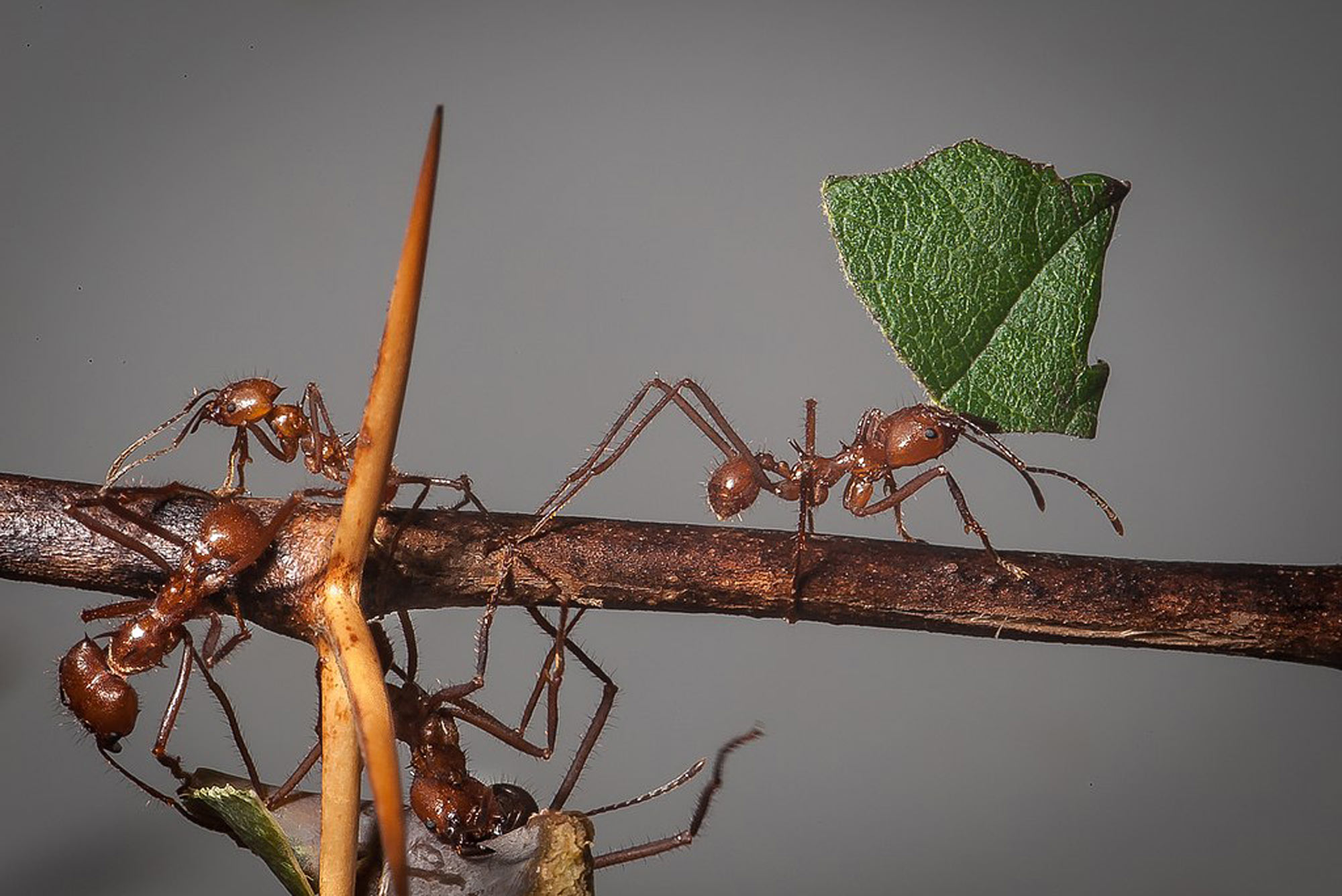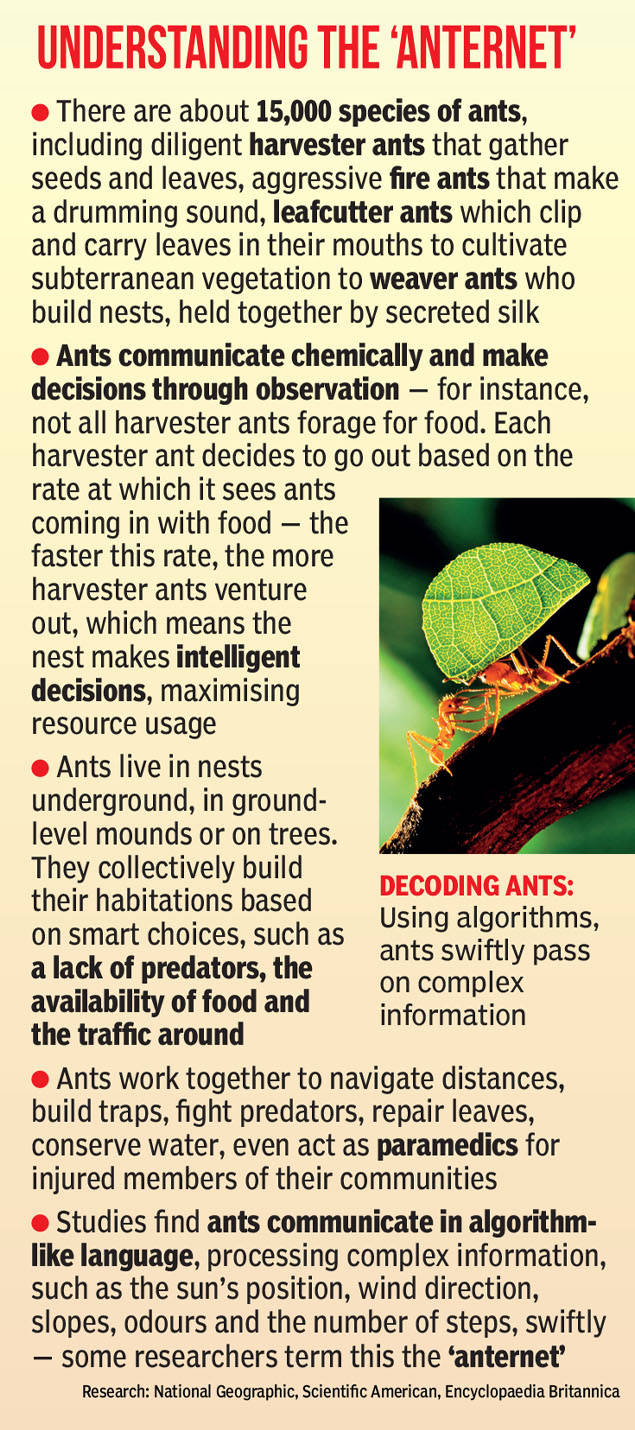Ants provide numerous benefits to humans, including aiding in waste decomposition, serving as natural pest control agents, and contributing to soil aeration and nutrient cycling. Their ability to efficiently break down organic matter helps prevent the buildup of waste and keeps ecosystems clean.
Additionally, ants play a crucial role in maintaining ecological balance by preying on insects that can harm crops and transmit diseases. Ants also enhance soil quality through their burrowing activities, which promotes aeration and allows water and nutrients to reach plant roots more effectively.
These small insects are an essential component of the natural environment and have a significant impact on human societies and the sustainability of ecosystems.

Credit: www.healthline.com
Agricultural Benefits
Ants play a crucial role in supporting agricultural activities and the natural ecosystem. Their contribution leads to enhanced seed dispersal and effective pest control, ultimately benefiting agricultural productivity.
Seed Dispersal
Ants aid in the dispersal of plants by transferring seeds to new locations. They unintentionally plant seeds as they forage, leading to the establishment of diverse plant species, thereby improving the biodiversity of agricultural areas.
Pest Control
Ants serve as natural pest controllers by preying on crop-damaging insects and consuming their eggs. This natural form of pest control helps in minimizing the need for chemical pesticides and promotes sustainable farming practices.
Medical Benefits
Ants are not just pests; they can offer numerous benefits to human health. Research has shown that ants possess unique properties that make them potential sources of medicine. Here are some of the medical benefits that ants can provide:
Antibacterial Properties
Ants produce antimicrobial compounds that have been found to be effective against various types of bacteria, making them a potential natural solution for combating bacterial infections. These compounds have shown promise for inhibiting the growth of harmful bacteria and reducing the risk of bacterial diseases.
Researchers have identified certain ant species that produce antimicrobial peptides, which are small protein molecules that can kill or inhibit the growth of bacteria. These peptides have shown activity against drug-resistant bacteria, providing a potential alternative to antibiotics that are becoming less effective due to the rise of antibiotic resistance.
Furthermore, extracts from ant species such as the weaver ant have demonstrated antibacterial activity against pathogenic bacteria like Staphylococcus aureus and Escherichia coli. These findings suggest that ants have the potential to contribute to the development of novel antibacterial agents.
Potential Anticancer Agents
A growing body of research suggests that certain ant species contain compounds that exhibit anticancer properties. These compounds have shown the ability to suppress the growth and proliferation of cancer cells, making them potential candidates for the development of new cancer treatments.
One such compound is formic acid, which is produced by certain ant species as a defense mechanism. It has been found to exhibit anticancer effects by inducing apoptosis, or programmed cell death, in cancer cells. Formic acid has shown promise in inhibiting the growth of different types of cancer cells, including breast, lung, and colon cancer cells.
In addition to formic acid, other compounds present in ants, such as polyphenols and alkaloids, have also demonstrated anticancer activity. These compounds have the potential to be developed into therapeutic agents for fighting cancer, offering new avenues for cancer treatment and research.
In conclusion, ants are not just tiny creatures that scurry around; they hold promising potential for human health. Their antibacterial properties and the presence of compounds with anticancer properties make them subjects of interest in medical research. By examining the chemical composition and unique properties of ants, scientists can uncover novel solutions for fighting bacterial infections and developing new cancer treatments.
Biotechnological Application
Biotechnological application of ant benefits to human health includes potential uses in medicine, agriculture, and food production. Ants produce antibacterial substances, enzymes, and antimicrobial peptides that can be harnessed for pharmaceutical and agricultural purposes, offering promising opportunities for biotechnological advancements with diverse practical benefits for human well-being.
Ants are not just fascinating creatures, but they also offer numerous benefits to humans. Their unique abilities have led to significant discoveries and innovations in various fields, including biotechnology. In this section, we will explore how ants play a crucial role in biotechnological applications, specifically in antibiotics production and genetic research.Antibiotics Production
Ants are known to possess a remarkable defense mechanism against harmful bacteria and fungi. They produce and use natural antibiotics to protect their colonies from infections. This incredible ability has caught the attention of scientists and researchers, who are now studying ants to unlock the secrets of these natural antibiotics.Through extensive research, scientists have identified specific compounds in ant-produced antibiotics that have the potential to combat antibiotic-resistant bacteria. These compounds have shown promising results in laboratory experiments and could pave the way for the development of new antibiotics that are effective against even the most stubborn bacterial infections.Antibiotics production by ants not only holds immense potential for human health but also for agriculture. By understanding how ants use antibiotics to defend their colonies, researchers can explore innovative ways to combat plant diseases and pests without resorting to harmful chemicals. This approach could revolutionize agriculture by providing a sustainable and environmentally friendly solution to crop protection.Genetic Research
Ants exhibit a remarkable degree of social complexity and specialization within their colonies. This complexity is achieved through the expression of specific genes that orchestrate different tasks and roles within the ant society. Understanding the genetics behind such behaviors can provide valuable insights into the workings of our own genetic makeup.Scientists are studying ant genomes to unravel the genetic basis of social behavior, communication systems, and adaptation strategies. By analyzing the genetic sequences of different ant species, researchers can identify genes responsible for key traits and behaviors. This research not only advances our knowledge of ants but also helps us understand how genes shape our own behavior and social dynamics.Moreover, the study of ant genetics has practical applications beyond understanding human behavior. It offers opportunities for the development of novel biotechnological tools and techniques. For instance, ant genomes can be used as a source of inspiration for the design of more efficient algorithms and optimization strategies.In conclusion, ants have proven to be invaluable assets in biotechnological research and applications. From their contribution to antibiotics production to their genetic insights, ants offer a wealth of knowledge and inspiration that can help us address pressing challenges in human health, agriculture, and technology. Harnessing the power of these tiny creatures has the potential to drive groundbreaking discoveries and innovations in the field of biotechnology.
Credit: www.bu.edu
Cultural Significance
The cultural significance of ants spans various civilizations and holds a special place in traditional beliefs, rituals, and medicines. Ants have been emblematic in different cultures, representing diverse attributes such as hard work, unity, and perseverance. Their role in traditional medicine further enhances their cultural significance and impact on human societies.
Symbolism In Various Cultures
Ants have been revered as symbols of determination and industriousness in numerous cultures across the world. In ancient Egyptian mythology, the ant represented diligence and organization. Meanwhile, in Native American folklore, they symbolized patience and endurance. Similarly, Chinese culture views ants as a representation of perseverance and teamwork.
Traditional Medicine
In many traditional medicine systems, ants and their byproducts have been utilized for their purported health benefits. Formic acid, secreted by ants, is considered to have healing properties in Chinese and Ayurvedic medicine. Additionally, some indigenous communities have used ants in poultices to alleviate inflammation and tend to wounds.
Challenges And Solutions
Ants offer numerous benefits to humans, providing natural pest control, aiding in soil aeration, and even pollinating plants. These tiny creatures play a vital role in ecosystem balance and contribute to our well-being in ways we may not realize.
Ants play a crucial role in our ecosystem, benefiting humans in various ways. Despite their importance, ants face certain challenges that can impact their populations. It is essential to address these hurdles through effective solutions to ensure their continued contribution to our environment.Pesticide Threats
Pesticides pose a significant threat to ants as they can harm their populations and disrupt their natural behavior. These toxic chemicals often cause collateral damage to beneficial insects and pollinators.To mitigate pesticide threats: – Promote the use of natural pest control methods – Educate on the dangers of indiscriminate pesticide use – Encourage sustainable farming practicesConservation Efforts
Conservation efforts are crucial in preserving ant populations and their essential role in our ecosystems. By protecting ant habitats and promoting biodiversity, we can ensure a healthy environment for both ants and humans.Effective conservation strategies include: – Creating ant-friendly habitats – Preserving natural ecosystems – Raising awareness about the importance of antsBy addressing these challenges and implementing sustainable solutions, we can safeguard ant populations and continue to benefit from their valuable contributions to our environment.
Credit: www.rappler.com
Future Prospects
Ants offer numerous benefits to humans, including pest control by consuming other insects, improving soil quality through their tunneling activities, and aiding in the breakdown of dead organic matter. They play a crucial role in maintaining ecosystem balance and contribute to a healthier environment.
Ant-derived Pharmaceuticals
Ants possess unique bioactive compounds that have shown great potential in medicine. The field of ant-derived pharmaceuticals is burgeoning with promising discoveries aimed at treating a myriad of human ailments. From antimicrobial agents to analgesics, ants are paving the way for innovative drug development.Sustainable Agriculture Practices
Ants play a crucial role in sustainable agricultural practices through their exemplary work ethic. They assist in nutrient recycling, pest control, and soil aeration, resulting in increased crop yields and reduced reliance on harmful pesticides. By harnessing the power of ants, farmers can embrace eco-friendly farming techniques for a greener future.Frequently Asked Questions For Ant Benefits To Human
What Are The Benefits Of Ants To Human Health?
Ants produce antimicrobial chemicals that can potentially be used in medicines for human diseases.
How Do Ants Contribute To The Environment?
Ants play a vital role in seed dispersal, soil aeration, and pest control in agricultural ecosystems.
Can Ants Be Used In Sustainable Agriculture Practices?
Yes, ants can enhance crop yields by feeding on insect pests, reducing the need for harmful pesticides.
Conclusion
The benefits of ants to humans are far-reaching. Their role in ecosystem balance, agriculture, and medicine is undeniable. Understanding and appreciating the symbiotic relationship between ants and humans can lead to sustainable coexistence. By preserving ant populations, we are ultimately benefiting our own existence on this planet.

I’m MD Tanvir, and I bring years of expertise gained from working closely with pest control companies to the forefront. My journey in the industry has inspired me to launch Bug Battler, a platform aimed at equipping people with the know-how to combat pests autonomously. Through Bug Battler, I aim to empower individuals with practical insights to tackle pest infestations effectively.

